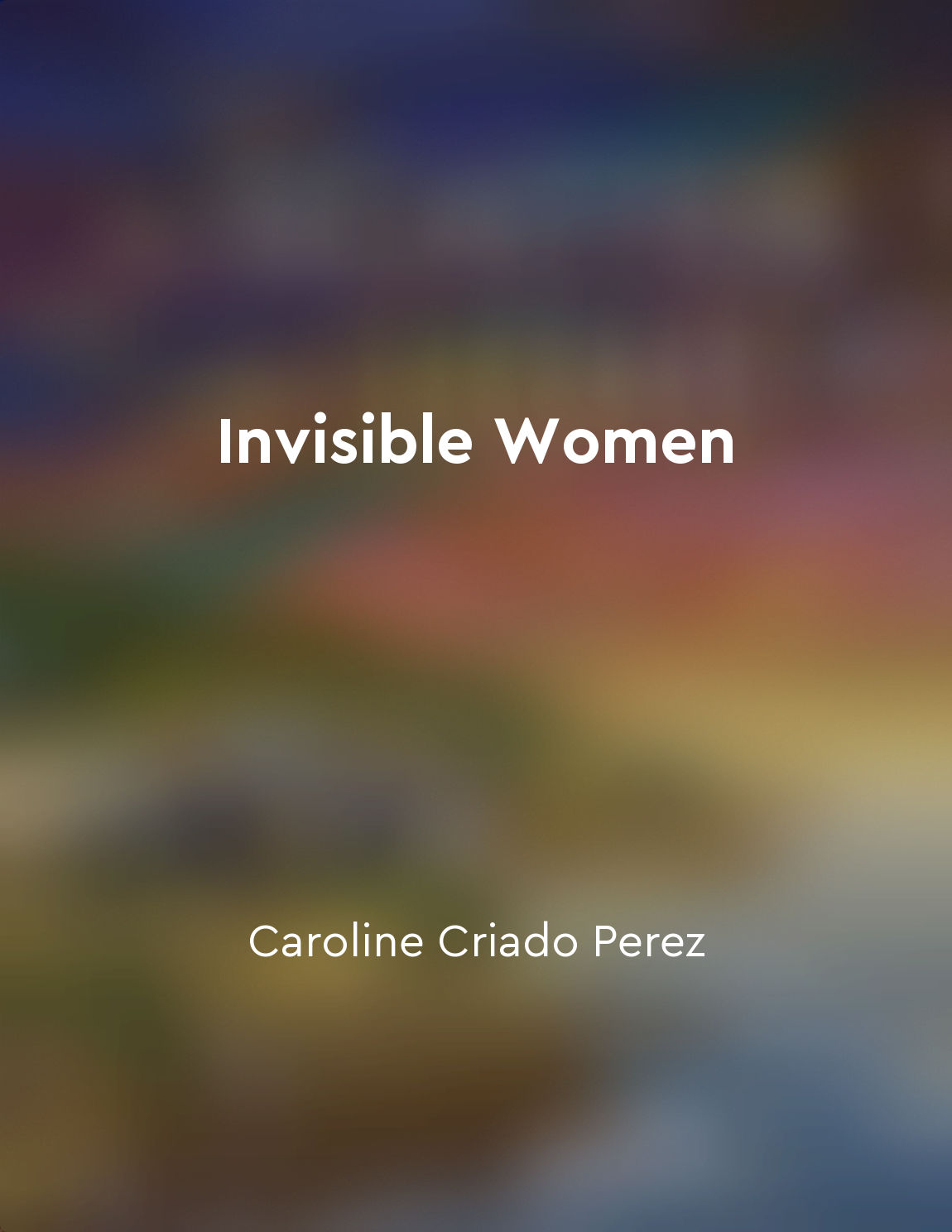Female voices are marginalized in public discourse from "summary" of Invisible Women by Caroline Criado Perez
It is a fact that the voices of women are often overlooked when it comes to public discussions and decision-making. This phenomenon is not merely coincidental but is deeply ingrained in societal structures and norms. When we look at various public forums, from government to media to academia, we see a stark lack of representation of women's perspectives and experiences. One of the reasons for this marginalization is the historical dominance of men in positions of power and authority. For centuries, men have been the primary decision-makers and influencers in society, shaping the narrative and agenda in public discourse. This has led to a systemic bias that prioritizes male voices and perspectives while sidelining those of women. Additionally, there is a pervasive belief that men are more credible, competent, and knowledgeable than women, especially in certain fields such as politics, economics, and science. This bias often results in women being dismissed, talked over, or ignored in public discussions, even when they have relevant expertise or insights to contribute. Furthermore, the language and communication styles favored in public discourse are often tailored to suit male ways of speaking and thinking. This can be alienating and discouraging for women, who may find it difficult to express themselves or assert their opinions in such environments. As a result, their voices are drowned out or marginalized in the conversation. The consequences of this marginalization are far-reaching and detrimental. When women's perspectives are excluded from public discourse, important issues that affect them are overlooked or misunderstood. Policies and decisions are made without considering the diverse needs and experiences of half the population, leading to systemic inequalities and injustices. In order to address this imbalance, it is crucial to actively seek out and amplify women's voices in public discussions. This requires creating spaces that are inclusive, respectful, and welcoming to diverse perspectives. Only by valuing and centering women's voices can we hope to achieve a more equitable and just society where all voices are heard and respected.Similar Posts
Justification of political power
The justification of political power lies at the heart of political philosophy. It is the fundamental question that underpins t...
Feminism is not about hating men
Many people believe that feminism is about hating men. It's not. Feminism is about justice. It's about equality. It's about rai...
Men seek independence as a sign of strength and selfreliance
Men have a primal need for independence. They view independence as a sign of strength and self-reliance. This desire for indepe...

The desire for recognition fuels inequality
The desire for recognition is a natural inclination that drives individuals to seek validation and respect from others. This de...
Find strength in shared struggles
When we come together with others who have faced similar challenges, we discover a powerful source of strength. Sharing our str...

Recognize women's potential
It is essential to understand and acknowledge the immense potential that women hold within themselves. When we recognize the ca...
He discusses the potential dangers of tyranny of the majority
In a democratic society, where the majority holds the power, there exists a potential threat known as the tyranny of the majori...

